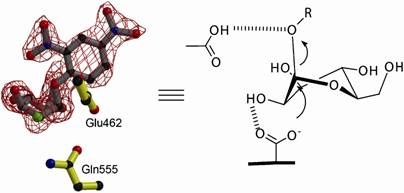Professor Frank Glorius receives BASF Catalysis Award 2005
Advertisement
Professor Dr. Frank Glorius from the University of Marburg today received the BASF catalysis Award 2005 worth EUR10,000 in recognition of his outstanding contribution to catalytic processes for organic synthesis. The award was presented by Dr. Stefan Marcinowski, member of BASF's Board of Executive Directors and Research Executive Director, at the Heidelberg Forum of Molecular Catalysis, an international congress jointly organized by the University of Heidelberg, BASF Aktiengesellschaft and the long-term collaborative research project on molecular catalysts SFB 623.
Dr. Frank Glorius is 32 years old and was appointed professor for organic chemistry at the University of Marburg in December 2004. His research work aims to simplify the synthesis of organic molecules substantially by means of new catalytic concepts that focus on both developing new transformations as well as increasing the selectivity and efficiency of chemical processes. The methods developed have proved to be of use in synthesizing biologically active compounds and natural substances (coniine, isooncinotine). Professor Glorius has already achieved progress that has caused a sensation in specialist circles in three important areas (cross-coupling reactions, asymmetric pyridine hydrogenation, organocatalyzed "conjugated" umpolung).
Many organic reactions do not occur independently, and are only possible due to the use of a catalyst. This role is often played by metal atoms linked with a specific ligand. Professor Glorius's team has, for example, developed a new class of ligands that surround catalytically active metals like a pearl in an oyster. The ligand (oyster) is able to open or close thus protecting or allowing access to the metal (pearl). These unusual ligands make it possible to catalyze otherwise difficult cross-coupling reactions that are important in building active ingredient molecules for use in the pharmaceutical industry.
Other news from the department people
Most read news
More news from our other portals
See the theme worlds for related content
Topic world Synthesis
Chemical synthesis is at the heart of modern chemistry and enables the targeted production of molecules with specific properties. By combining starting materials in defined reaction conditions, chemists can create a wide range of compounds, from simple molecules to complex active ingredients.

Topic world Synthesis
Chemical synthesis is at the heart of modern chemistry and enables the targeted production of molecules with specific properties. By combining starting materials in defined reaction conditions, chemists can create a wide range of compounds, from simple molecules to complex active ingredients.

































































